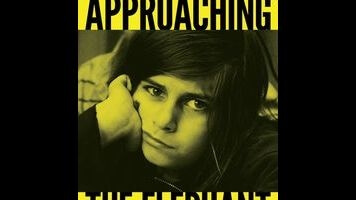The Teddy McArdle Free School in New Jersey doesn’t look, sound, or operate like most people’s idea of a school. There are no desks, no grades, no exams. The classes themselves are voluntary, with students urged to study what interests them most. (For many of the preteen attendees, that list includes working with power tools, making paper airplanes, and running wild through the halls.) Everything is decided upon as a group, from rules to curriculum to disciplinary measures, and the kids’ votes count as much as the adults’. All of this may sound like a recipe for disaster, but there is method to the madness: Like the more than 250 other free schools in the world, Teddy McArdle was built on a belief that education should be democratic, individual passions should be fostered, and children should have a say in their own upbringing. But there’s a big gulf separating a good idea in theory and a successful one in practice.
With Approaching The Elephant, director Amanda Rose Wilder documents the first full year at Teddy McArdle, following an inaugural class of about a dozen students and the patient instructors overseeing their veritable daylong free period. Shooting in “Academy Ratio” black-and-white, in the fly-on-the-wall observational mode of Frederick Wiseman, Wilder captures the bumps and grinds of this educational experiment—the randomly attended lessons, the conflict resolution, the vote sessions that often devolve into screaming matches. The footage, edited by Actress director Robert Greene, coheres into what feels like one long, chaotic school day. You can practically feel the pulse of grown-up veins, the fraying of last nerves.
In other words, those seeking a cogent argument in favor of the free school model won’t find it here. The filmmaking mirrors the non-interference policy of the program: In addition to employing no dates, no name tags, and no talking-head interviews, Wilder declines to include statistics, or really anything that would place Teddy McArdle in the context of other schools (beyond an opening block of text tracing the free school philosophy back to early-20th-century Barcelona). What we get instead is a portrait of the sheer difficulty in establishing a democratic organization, especially when its prospective practitioners are between 5 and 12 years old. The kids love the meetings, where they get to loudly voice their opinions, but their passion rarely seems to extend to the learning process. Part of the problem, in this case, is that most of the students come from more conventional classroom environments, and hence treat Teddy McArdle like little more than a blessed alternative—all recess, no homework. Some of them, like a young girl who hesitates to use a saw because her parents probably wouldn’t let her, seem too indoctrinated by authority to embrace the guiding principles.
“Characters” gradually emerge before Wilder’s camera, the kids revealing themselves as troublemakers or team players, suited to the program or decidedly not. But it’s an adult personality that comes into sharpest focus: Alexander Khost, the school’s founder, bristles under the pressure of monitoring (without controlling) an unruly student body; the ideals of Teddy McArdle often seem in direct conflict with the difficulty in realizing them. Does a firm belief that school should be an encouraging, not discouraging, institution outweigh the property damage some of the rowdier kids cause? How does one honor a system of absolute voting rights when the need to overrule a foolish decision presents itself? Khost believes in treating children as equals, but more often than not, he sinks to their level instead of bringing them up to his—especially late in the film, when the behavior of a delinquent student provokes this once-bullied mentor to throw a tantrum and launch an expulsion crusade. (As in the lightly fictionalized The Class, there’s the troubling suggestion that some kids will have to fail for the others to succeed.)
At one point, Khost openly admits that it will probably be two decades—enough time for these first few groups of students to grow up and enter the “real world”—before they’ll know if the Teddy McArdle methodology is a sound one. It’s hard not to wonder what a longer filming commitment, à la Hoop Dreams, might have revealed about the sustainability and value of free schools. But as a microcosmic study of democratic growing pains, Approaching The Elephant is both gripping and often dryly, shockingly hilarious. When Khost is forced to honor a call for meeting and humor debate as to whether jumping off school property is an unalienable right, the occasional absurdity of what he’s sanctioned becomes painfully clear. Wilder gets the same impression across a few minutes earlier, during a long shot of the head instructor chastising a young boy for striking him while another writes “fuck” on a chalkboard nearby… and misspells it to boot. At least one lesson gets imparted within the walls of Teddy McArdle: Get the kinks out before inviting a camera to film your venture.

